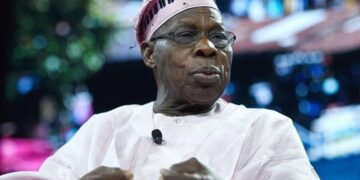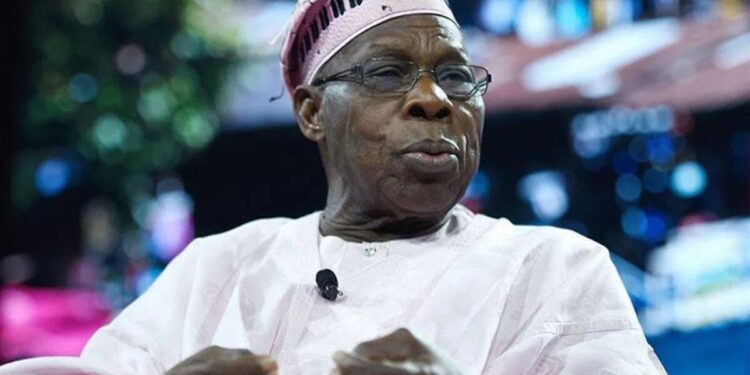By Enyichukwu Enemanna
Former President of Nigeria, Chief Olusegun Obasanjo has expressed dissatisfaction over the high cost of automotive gas oil (AGO), popularly known as diesel in the country.
The former Nigerian leader said the situation has affected his fish business, lamenting, “I am already sweating”.
Obasanjo who spoke on Tuesday at a congress organised by Southwest fish farmers at the Olusegun Obasanjo Presidential Library (OOPL) in Ogun State, predicted that if the situation continues, it may drive fish farmers out of business.
Obasanjo who put the cost of AGO at N800 per litre, also revealed that the production cost of a kilogram of fish is N1,400.
He said farmers must not sell less than N1,500 as anything short of that would lead to “outright loss”.
A statement by his media aide, Kehinde Akinyemi quoted the octogenarian as saying, “I am already sweating and if the situation does not go down, anybody that is using diesel, I don’t know your calculation, my calculation is that I cannot produce a kilo of fish with less than N1400. That’s about what it cost as of today. So, if I sell my fish around N1,400 I cannot make a profit,”
Obasanjo added, “If we don’t come together as an association, nationally, we will sink individually. If we come together, we will swim and survive together.
“And while we are working on coming together, I thought that the situation has arisen whereby we have to do something urgently.
“The price of diesel has gone sky high because the management of this country is not what it should be. And it is as simple as that.
“Then, what will happen is that particularly those of us who have to use a bit of diesel in producing fish, we will completely go bankrupt, and when that happens, Nigerians will still have to eat fish.
“And you will go jobless, poor, and indigent. So, what do we have to do? To come together… we want to sustain fish production, and we must be able to take care of those who are going to eat and those of us who are producing.”
He further said Nigeria will soon become a dumping ground for fishes produced outside the country with the increasing cost of maintaining a fish farm.
Obasanjo who took over leadership of the largest African nation in 1999 upon return to democracy, left the seat of power in 2007 upon the completion of his constitutional two terms of four years each.
He was the country’s head of state between 1976 to 1979.
He had been critical of handling of the nation’s affairs, particularly economy and security under the incumbent President Muhammadu Buhari government.




































